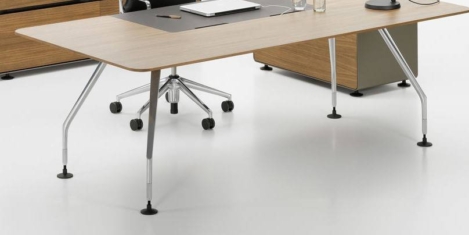April 10, 2019
Insecure managers can cause huge damage to their organisations
 Insecure managers who worry that their performance could be undermined by competent subordinates can end up ostracising talented employees they feel are a threat to their own position. According to an paper published in The International Journal of Human Resource Management by Professor Kirk Chang of the University of Salford Business School and his research team, managers whose negativity towards staff they see as threats can go on to cause huge damage to their organisations. Professor Chang, an expert in human resource management, said: “While the competence of subordinates is considered desirable in the workplace, it may create challenges in managing people in organisations.”
Insecure managers who worry that their performance could be undermined by competent subordinates can end up ostracising talented employees they feel are a threat to their own position. According to an paper published in The International Journal of Human Resource Management by Professor Kirk Chang of the University of Salford Business School and his research team, managers whose negativity towards staff they see as threats can go on to cause huge damage to their organisations. Professor Chang, an expert in human resource management, said: “While the competence of subordinates is considered desirable in the workplace, it may create challenges in managing people in organisations.”










 Employers need to understand more about the impact of personal financial worries on workplace mental health, but are struggling to agree best practice standards to address the issue, new research from
Employers need to understand more about the impact of personal financial worries on workplace mental health, but are struggling to agree best practice standards to address the issue, new research from 




 The corporate appetite for flexible space continues to grow as around two-thirds of occupiers rank employee engagement (68 percent) and talent attraction & development (65 percent) as two of the three most important drivers of corporate real estate (CRE) strategy. According to the 2019 EMEA Occupier Survey by CBRE over a third of companies see labour and skills shortages as a key strategic challenge, double last year’s result. In line with last year’s survey, technology disruption (36 percent) economic uncertainty (43 percent) and cost escalation (31 percent) all feature highly as key challenges for occupiers.
The corporate appetite for flexible space continues to grow as around two-thirds of occupiers rank employee engagement (68 percent) and talent attraction & development (65 percent) as two of the three most important drivers of corporate real estate (CRE) strategy. According to the 2019 EMEA Occupier Survey by CBRE over a third of companies see labour and skills shortages as a key strategic challenge, double last year’s result. In line with last year’s survey, technology disruption (36 percent) economic uncertainty (43 percent) and cost escalation (31 percent) all feature highly as key challenges for occupiers.


 Procurement fraud is widespread in the UK and the country lags behind many countries in its detection capabilities,
Procurement fraud is widespread in the UK and the country lags behind many countries in its detection capabilities, 














April 5, 2019
Brexit, Brits and blending: what MIPIM told us about the state of corporate real estate
by Anna King • Comment, Property
(more…)